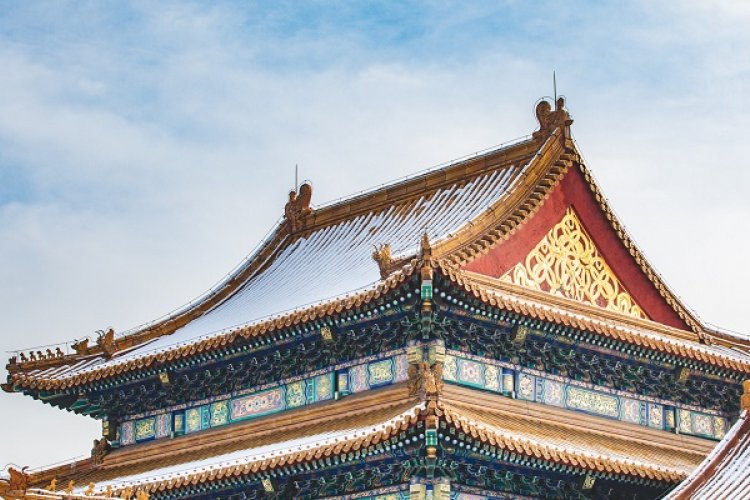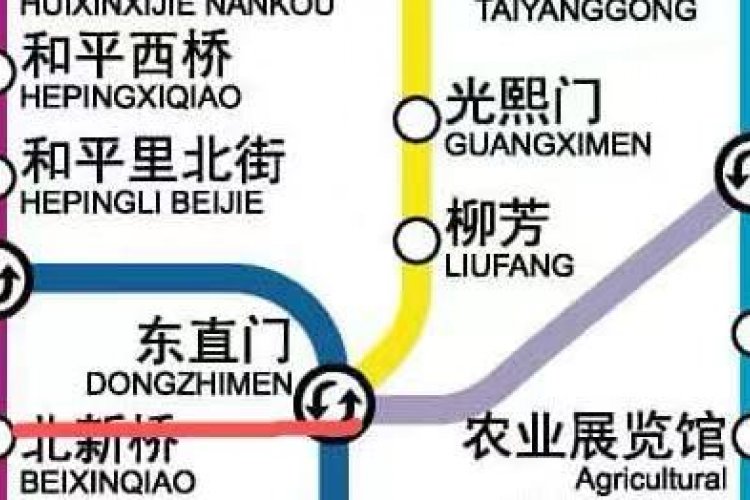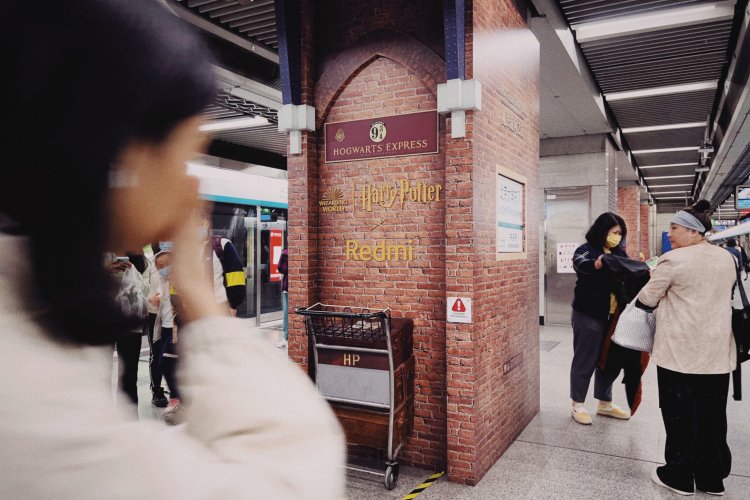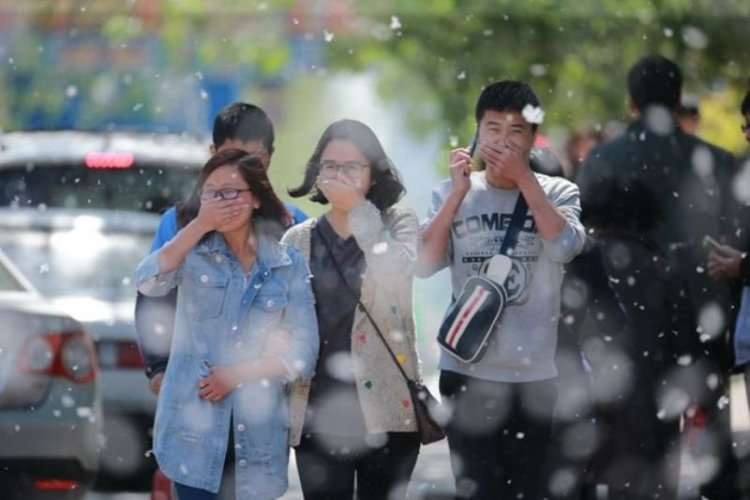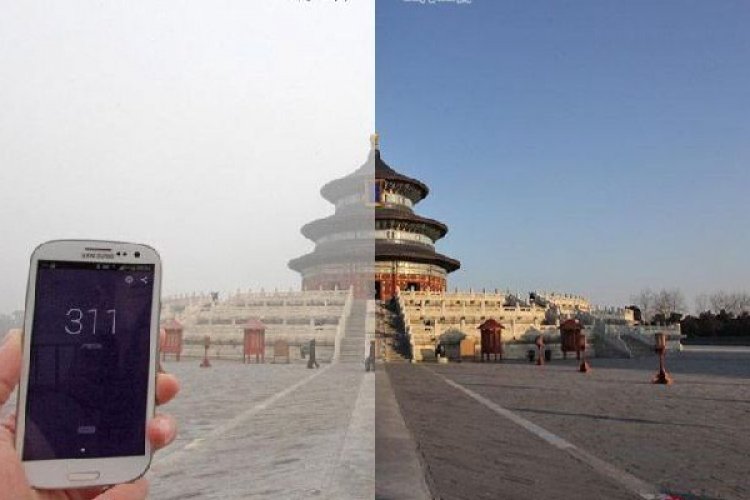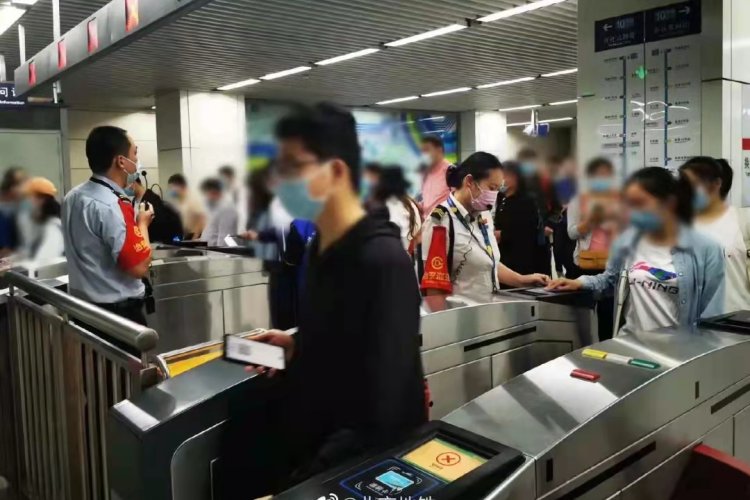It’s Electric: Beijing's Traffic Plans Could Mean Changes for Air Pollution
If you’ve been brave enough to take China's driver's license test and score permission to cruise the ring roads, this is for you: The Beijing government has announced they aim to complete 30 projects that will help reduce the city's hairy traffic jams, according to the China Daily. The rest of you, stay put. Beijing also wants to implement more electric alternatives to traditional transportation, which just might allow us to breathe easier.
We’ve been talking about air pollution a lot lately (in case you’ve missed it, you can read about it here and here), but there’s still much to be said when it comes to considering the data that says 22.2 percent of the PM2.5 in the air comes from auto emissions. Loceal netizens responded to January’s air pollution spike with suggestions encouraging the ever-increasing amount of people in Beijing taking public transportation whenever possible. With the recent subway line openings and more in the making, it looks like this is already well underway.
Last week, we announced that Beijing's subway is now the world's busiest, so how does a city manage a public transportation system that's already overstuffed? One solution is improving the bus system.
Among the items on Beijing's to-do list are open more bus lines and stops and add additional bus lanes. The city also plans to be switching out old buses and public service vehicles with electric ones and expect around 3,000 buses and taxis to be electric by the end of this year. For these, and the additional 2,000 electric cars that are presumed to hit the streets in 2013, Beijing plans to add more battery charging stations throughout the city.
The government’s electric efforts date back prior to the 2008 Olympics, but hasn’t seemed to stick thanks to high operating costs. This could change with a new policy in the works that would allow people to purchase license plates for electric vehicles without having to go through the city's plate lottery system.
Beijing also aims to add 20,000 parking spaces, although it’s still unclear as to where these will be. We can only hope they’re not in the bike lanes, or cyclists will risk ending up like this guy:
If you’re still not convinced that this year's changes will make you leave your mask at home, maybe it's time to build this bike that sucks up dust particles.
Related stories :
Comments
New comments are displayed first.Comments
![]() admin
Submitted by Guest on Mon, 03/25/2013 - 14:36 Permalink
admin
Submitted by Guest on Mon, 03/25/2013 - 14:36 Permalink
Re: It’s Electric: Beijing's Traffic Plans Could Mean ...
Of course my personal dream is huge spikes inset along the roads at every crossing. When lights turn red they pop up, blowing tires, destroying engines and skewering bicyclists and pedestrians trying to run the light. Just think...install those, sacrifice a few people to Darwin and in 2 days Beijing would be a traffic law paradise. Of course that's expensive. Maybe just some snipers at every crossing to take out violators.
wow
I've had that same dream
why can't they do traffic the way they do the GFW?
![]() britomart
Submitted by Guest on Mon, 03/25/2013 - 10:55 Permalink
britomart
Submitted by Guest on Mon, 03/25/2013 - 10:55 Permalink
Re: It’s Electric: Beijing's Traffic Plans Could Mean ...
Been here a while, eh, bluefish? Have to say I'm with you on the traffic spikes and/or snipers. Ah, what a bit of well-implemented cynicism wouldn't accomplish in this city.
![]() bluefish
Submitted by Guest on Fri, 03/22/2013 - 12:33 Permalink
bluefish
Submitted by Guest on Fri, 03/22/2013 - 12:33 Permalink
Re: It’s Electric: Beijing's Traffic Plans Could Mean ...
As far as just congestion goes, putting more money and effort into enforcement of traffic laws would do more than anything suggested here. And that goes for bikes, scooters and pedestrians as well as cars and buses. The cars, restaurant "adjunct" areas and stores are on the sidewalk so the pedestrians are in the bike lane, which is also a parking lot, so the bikes are in the bus lane, so the buses are over in the far lanes and the cars are anywhere and everywhere and the motorized scooters are menacing everyone while the electric ones are either stopped dead behind cars tooling along in their lane looking for parking or out playing chicken with the buses. Any sane plan has to start with heavy penalties controlling the cars (and restaurants/bars/shops) infringing on sidewalks and bike lanes; then once pedestrians and bicycles and scooters have a place to actually move, start penalizing them for not using it. It'll never happen, but that's what it would take.
As for other suggestions, they aren't going to do anything. Adding more buses will have just as much affect as adding subways has had: none. Anyone been here long enough to remember how adding buses was going to save us all a few years ago? Open a few new lines of subways and magically the traffic problems would dissipate? How's that worked out for us? And now the answer is just to do it again?
People with cars don't say "Hey! Look! There are more slow, freezing/burning buses/subways stuffed with smelly people that we may or may not be able to get on! Let's ride public transport today!" It's the people on bikes and scooters who decide that maybe with cheaper prices and more stops they can afford to take the bus/subway. Then the people who were riding public transport decide to finally spring for cars, because they can't handle arriving at work half an hour late smelling like they climbed out of the sewer. So the buses and subways fill to and beyond capacity while the number of cars just continues to grow. People with the wealth to own and operate cars will not be lured to the subways and buses without carrots and sticks: Huge penalties for using their cars combined with air conditioned subways where you can get from one line to another without hiking half a mile up and down stairs in a connection designed by a drunk and installed by idiots. Air conditioned buses that have seats available most of the time. Think Hong Kong.
Additionally, the buses need dedicated, blocked bus lanes so buses can actually get places with some semblance of speed. Lanes that cars and bikes cannot get into, with good fencing to force riders to go up and over the bike/car lanes instead of across them at random to get to the bus stops.
Of course my personal dream is huge spikes inset along the roads at every crossing. When lights turn red they pop up, blowing tires, destroying engines and skewering bicyclists and pedestrians trying to run the light. Just think...install those, sacrifice a few people to Darwin and in 2 days Beijing would be a traffic law paradise. Of course that's expensive. Maybe just some snipers at every crossing to take out violators.
Validate your mobile phone number to post comments.

